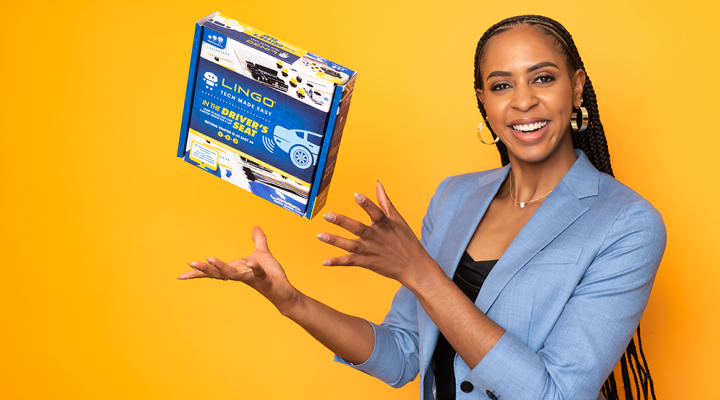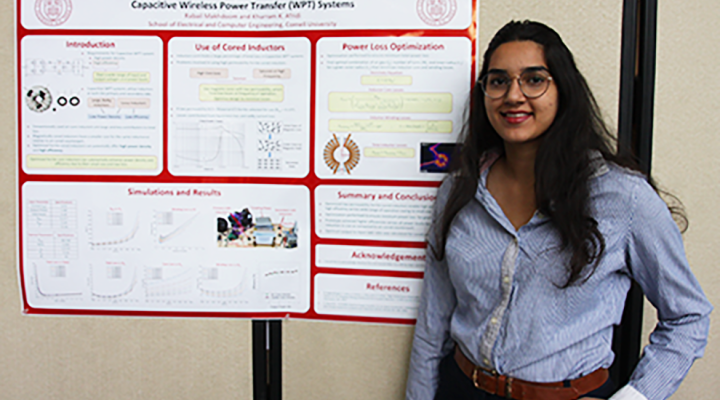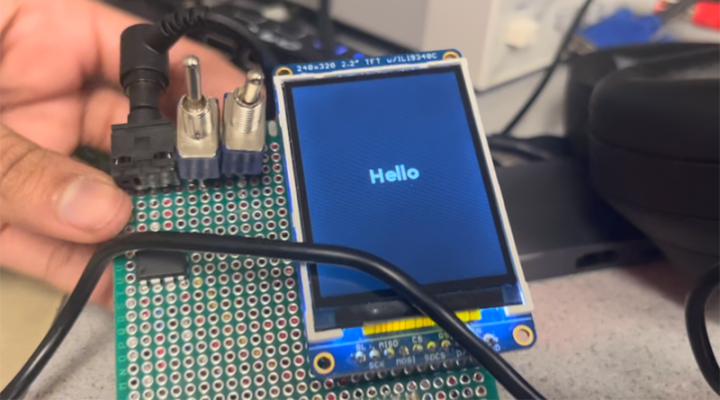As a high school sophomore, Mikayla Diesch and her younger sister competed in a competition to create an energy bar for NASA—and won.
The competition was focused on innovation, so Mikayla and her sister worked with a local food scientist from their hometown of Battle Creek, Michigan (home of the Kellogg’s corporation), and developed a nutrition bar as an alternative to drinking Red Bull and targeted to people who stay up late studying. They called their company Solar Flare.
“In our research, we came across an Omega 3 fatty acid, DHA which is really good for brain health, eye health, heart health. But it oxidizes very rapidly. We found a way to encapsulate it into our nutrition bars and our stability testing has shown that our bars have a shelf life of up to two years without oxidizing.” They now hope to get their nutrition bar to market in a couple of years.
After the competition, Diesch and her sister traveled and talked to students and teachers about STEM education, particularly women in STEM, something they are extremely passionate about. “When the director of education at NASA heard what we were doing, he said ‘I want their bar to go to the International Space Station.’ So we sent six nutrition bars up on the second-to-last launch of Space Shuttle Endeavor. And we got watch the launch at the Kennedy Space Center right up by the giant clock.”
Diesch came to Cornell that fall with a pre-med engineering track in mind to become a doctor, but soon discovered it wasn’t quite the right fit. When she took Introduction to Circuits with Associate Professor Al Molnar, she loved it and decided electrical and computer engineering was what she wanted to do. She dove in.
“With Cornell ECE, I got a small school experience with big school facilities. I got a lot of hands on one-on-one time with my professors, small classes, serious in-lab time and all of these amazing facilities that you wouldn’t necessarily get at a small school. At the same time, I could go out on the Arts Quad and meet someone in a completely different major from a completely different part of the world. But I could come back to my little 200-person class and feel comfortable and safe. And that was really, really cool.”
In her senior year, Diesch built a device to monitor ECG signals, something she had wanted to do since her sophomore year at Cornell but at the time had no idea how to actually build it, design it or even where to start. The idea had come when her younger brother seemed to be having heart problems (which turned out to be nothing), but had to wear a Holter monitor to high school. If you haven’t had this experience, think of wearing a device the size of a large camera around your neck that records your heart activity (ECG) through electrodes attached to your skin and wearing that for 24 to 48 hours or longer, while carrying on with your normal daily activities.
Diesch decided to design something that would still gather the same data, but wasn’t as bulky, uncomfortable or even noticeable. She created Wrist Beat, a device consisting of two wristbands, one worn on each wrist that monitor a person’s ECG signals and send the data back to his or her doctor.
“It wasn’t until my senor year, when I took ECE 5040, Neural Interfaces with Prof. Molnar that I was able to build the prototype as the final project for the class. I used the project for the Big Idea Competition that spring and through that got accepted to Cornell’s Life Changing Labs Incubator program.” Diesch was also a Kessler Fellow as an undergraduate, spending a summer in New York City with DreamIt Incubator Programs learning about the business side of startups.
“I didn’t know I was interested in entrepreneurship before Solar Flare, but since then, I’ve done several pitch competitions and have found that’s what I really love to do. It’s a lot of fun, especially discovering the amazing projects and people doing different things.”
Ultimately, Diesch sees herself in the startup space when she’s done with her Cornell ECE M.Eng. degree. “I’ve been involved with the startup community since my freshman year, and I love it. There’s something about the passion that everyone has that inspires me and in turn inspires other people. It’s a great positive feedback loop, a great environment. “
For her M.Eng. project, she’s working with a startup designing a fitness monitor that will have seamless integration with weightlifting—instead of manually entering into an app that you lifted 15 pounds 10 times, it will automatically do it for you.
“Again, I get to build something, which I love to do,” she says. “I have a little workshop set up in my apartment where I get to just tinker, which is so much fun. It’s something I wasn’t exposed to before I came to Cornell. It really opened my eyes. The best decision I ever made was coming here. That’s what I tell everyone.”




